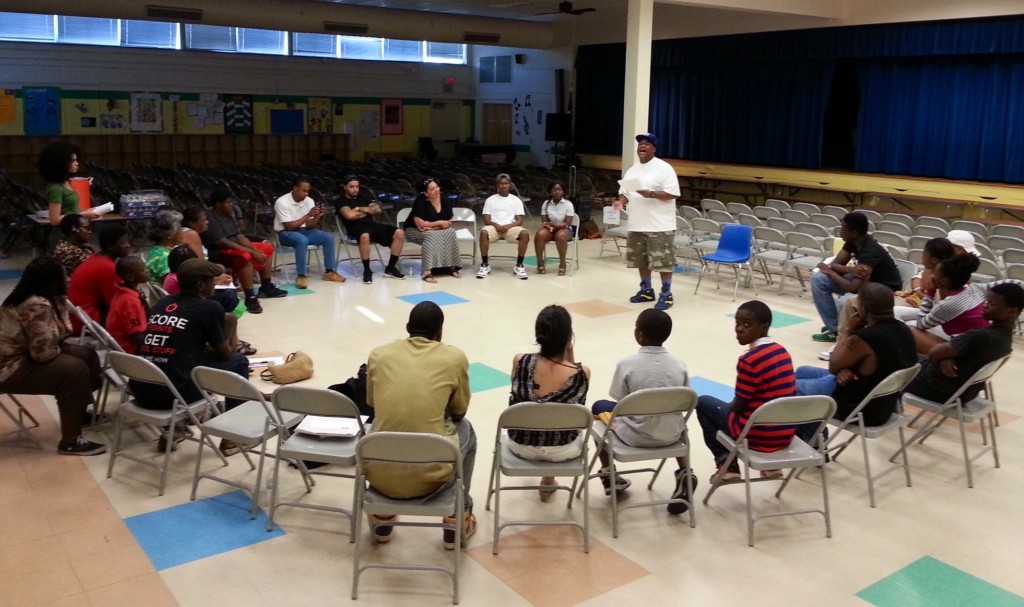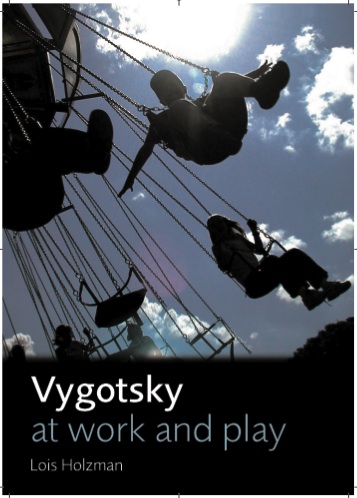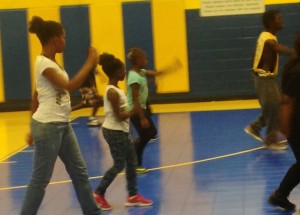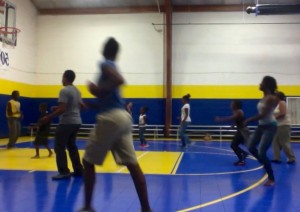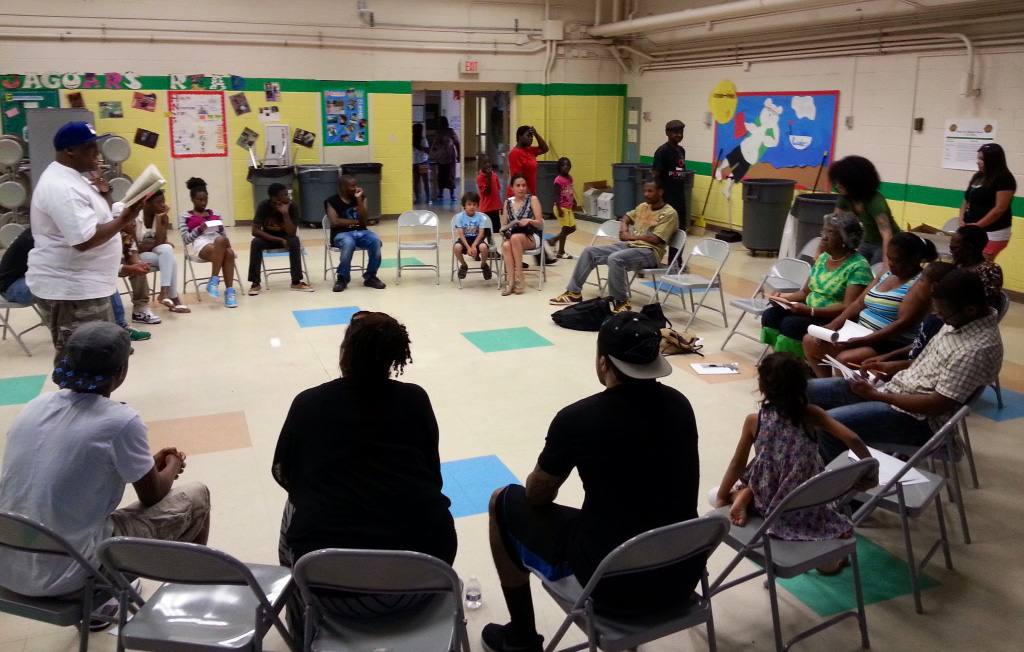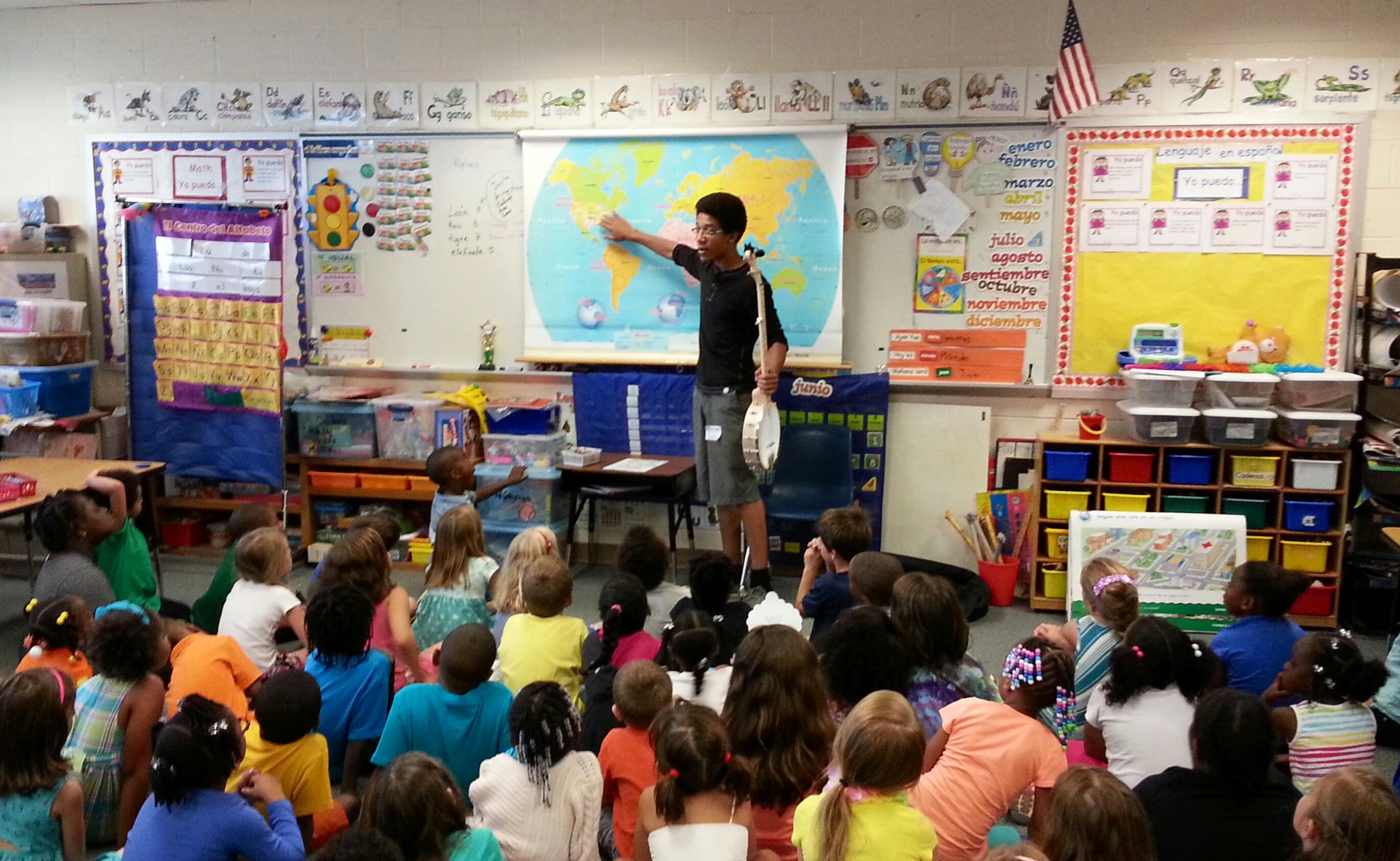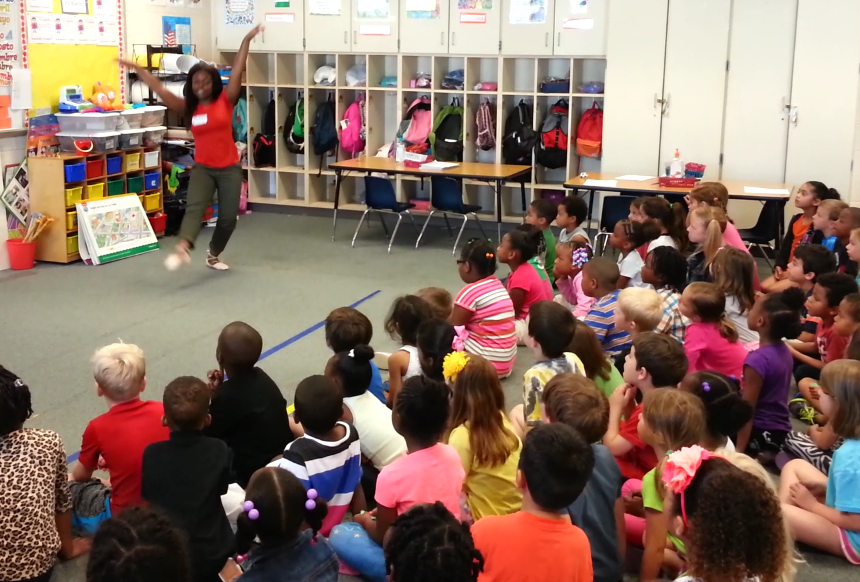Community Play!/All Stars Alliance produces free cultural events, classes, and workshops in Greensboro, North Carolina. It was founded in and with the Warnersville community in Greensboro and has been in partnership with Greensboro Parks & Recreation and Lloyd International Honors College at The University of North Carolina at Greensboro. Inspired by the performance-based approach to learning and development in the national All Stars Project, and based upon the pioneering work of the Vygostkian developmentalist Dr. Lois Holzman and philosopher of science Dr. Fred Newman, Community Play! encourages people of all ages to grow, learn, and develop by playing with and trying out new roles and performances. We learn by engaging in ‘extra-curricular’ experiences–taking trips, visiting cultural institutions, meeting different kinds of people, having a chance to try new things. Such play is just as important for adults as it is for young people. These kinds of experiences help us develop our abilities to recognize opportunities and act upon them. When we play, we develop; and not only do we learn better (becoming better learners), but we actively shape our lives, our communities, and our world. See slideshow.
Articles and Commentary:
Catie Byrne, “Valentine’s Day Talent Show,” The Carolinian (February 16, 2015)
David Kohn, “Let the Kids Learn Through Play,” New York Times (May 16, 2015)
Jake Livengood, “Learning from Improv,” Inside Higher Education (June 15, 2015)
Sam McNerney, “What Improv Teaches us About Creativity,” Big Think: Smarter Faster (February 2017)
Plenary session on the interface of performance studies and performance activism at Performing the World 2012, hosted by Dan Friedman and Richard Schechner.
http://youtu.be/sdL09mO3VSQ
http://www.youtube.com/watch?v=IrudS8wftuc
“We understand performance very broadly. From our point of view, performance might have nothing to do with being on the stage. We think you can perform at home, at work, in any social setting … With the proper kind of support, people discover they can, that we can, do things through performance that we never thought we could do … in a sense, we’re trying to broaden each person’s notion of ‘what you’re allowed to do.’”
(F. Newman, introductory remarks to performance of Trouble, an improvised play directed by Newman at Performance of a Lifetime in New York City, June 1, 1996)
Performing and Playing in the Warnersville community of Greensboro …
“What I mean by development is the ability that we have and that we can see in children all of the time of transforming qualitatively who they are into someone else, into from a baby to a toddler, from a toddler to a child, from a child to a teenager, and so on, that we transform the circumstances that we’re in and become bigger and greater and more knowledgeable and more passionate about things and more imaginative. And many of our institutions stifle that, so my passion is to re-initiate development in all those people that it has stopped, and to provide the best for the very young so that they can continue to thrive and develop.”
Lois Holzman, “Using Improvisation and Performativity as Teaching Tools”
